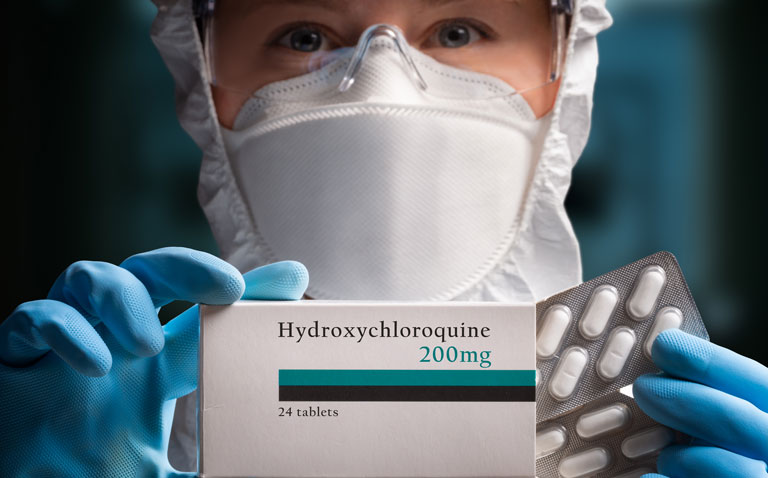Several drugs have been used in an effort to treat the symptoms of COVID-19 including anti-malarials such as hydroxychloroquine (HCQ) although there have been concerns expressed about the safety of the drug, in particular, its prolongation of the QT interval which is associated with arrhythmias.
Now in an analysis by the European Society of Cardiology, it appears that HCQ can be safely administered for a short period of time in a range of clinical settings. The authors examined the effects of HCQ in three different settings: home management; medical wards; and intensive care units. For patients managed at home, the drug was initiated in a hospital setting. Eligible patients were required to have a pre-HCQ 12-lead ECG available and a second ECG which was defined as early (within 5 days before the first dose of HCQ) or late (either 36-72 hours or 96 hours after the first dose). For all patients, various parameters were collected including demographics, cardiovascular comorbidities, ECG readings et and stored in a de-identified database. The team also collected PQ, QRS and QTc durations before and after HCQ administration as well as ventricular arrhythmic events from healthcare records. Arrhythmia safety was assessed with regard to malignant QT-prolong arrhythmias. In cases where patients had died, a committee of three members (blinded to the treatment at the time of occurrence of the arrhythmic event) judged the relationship with HCQ administration.
Findings
In total, 649 patients were enrolled with a mean age of 61.9 years (46% male) and HCQ was administered at home (19.4%), in hospital wards (76.3%) and at intensive care units (4.3%). For patients with late ECG readings (36-72 hours and 96+ hours after the first dose), a significant QT/QTc interval prolongation was observed but the magnitude of the increase was modest at +13 ms. In addition, baseline QT/QTc length and the presence of fever at admission were the most important determinants of QT/QTc prolongation and there were no arrhythmic-related deaths reported. The incidence of ventricular arrhythmias was low (1.1%) and these events were found to be not related to QT or HCQ therapy. Finally, the authors reported no difference in QT/QTc prolongation across the different settings.
They concluded that HCQ is safe in the short-term for those with COVID-19 provided that a baseline ECG is taken and a patient risk assessment performed.
Reference
Gasperetti A et al. Arrhythmic safety of hydroxychloroquine in COVID-19 patients from different clinical settings. Europace 2020;0, 1–9 doi:10.1093/europace/euaa216










